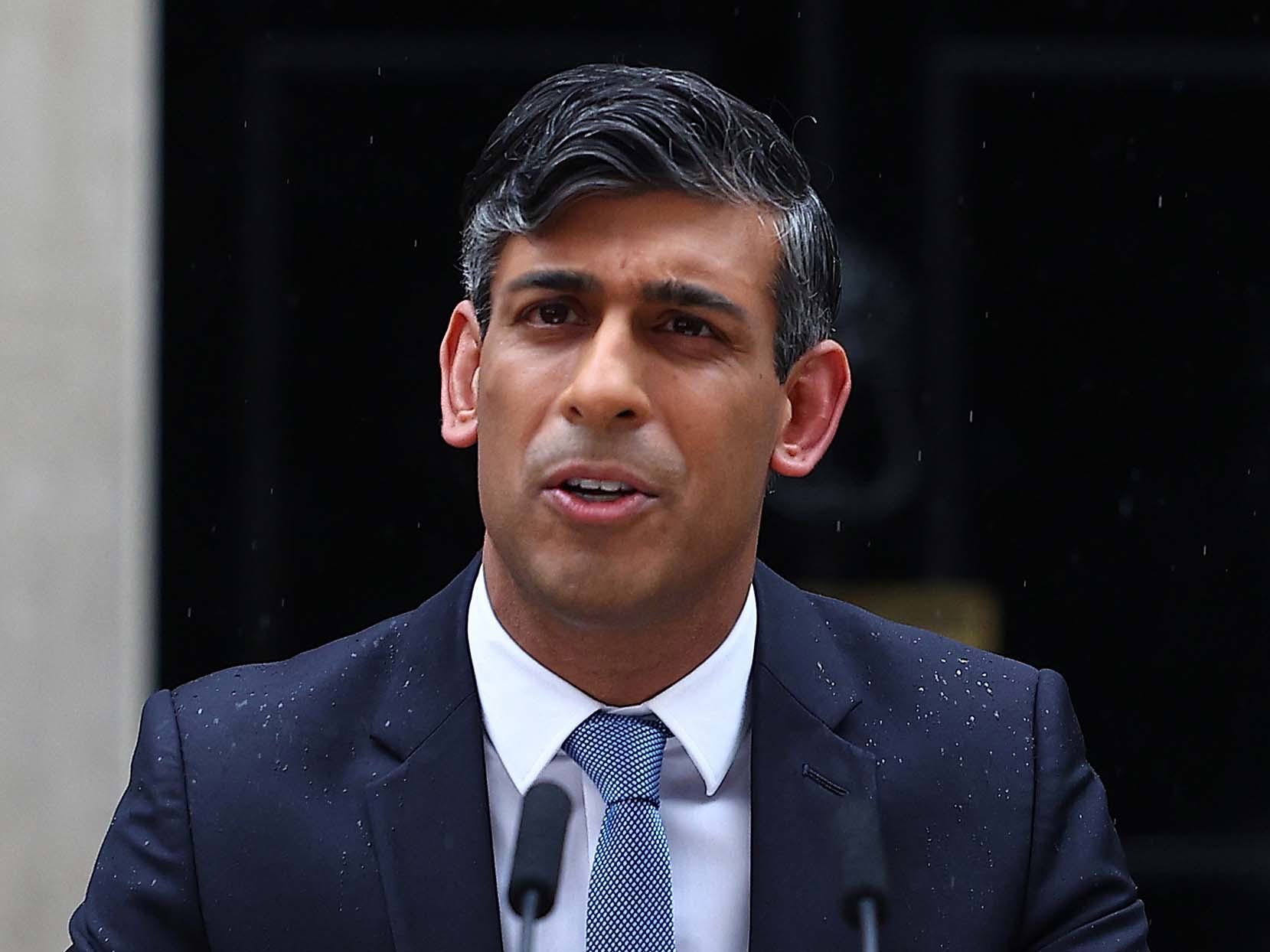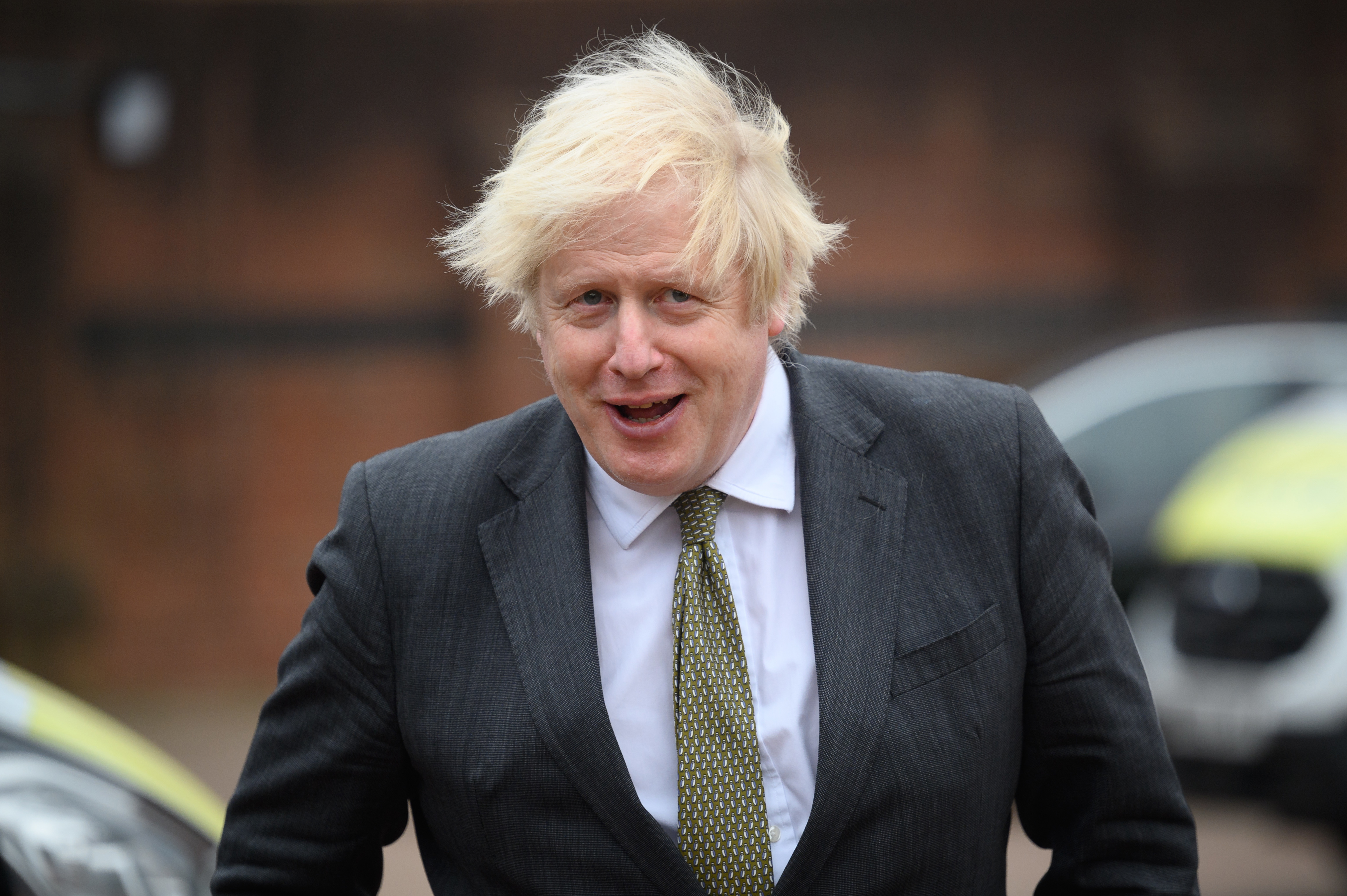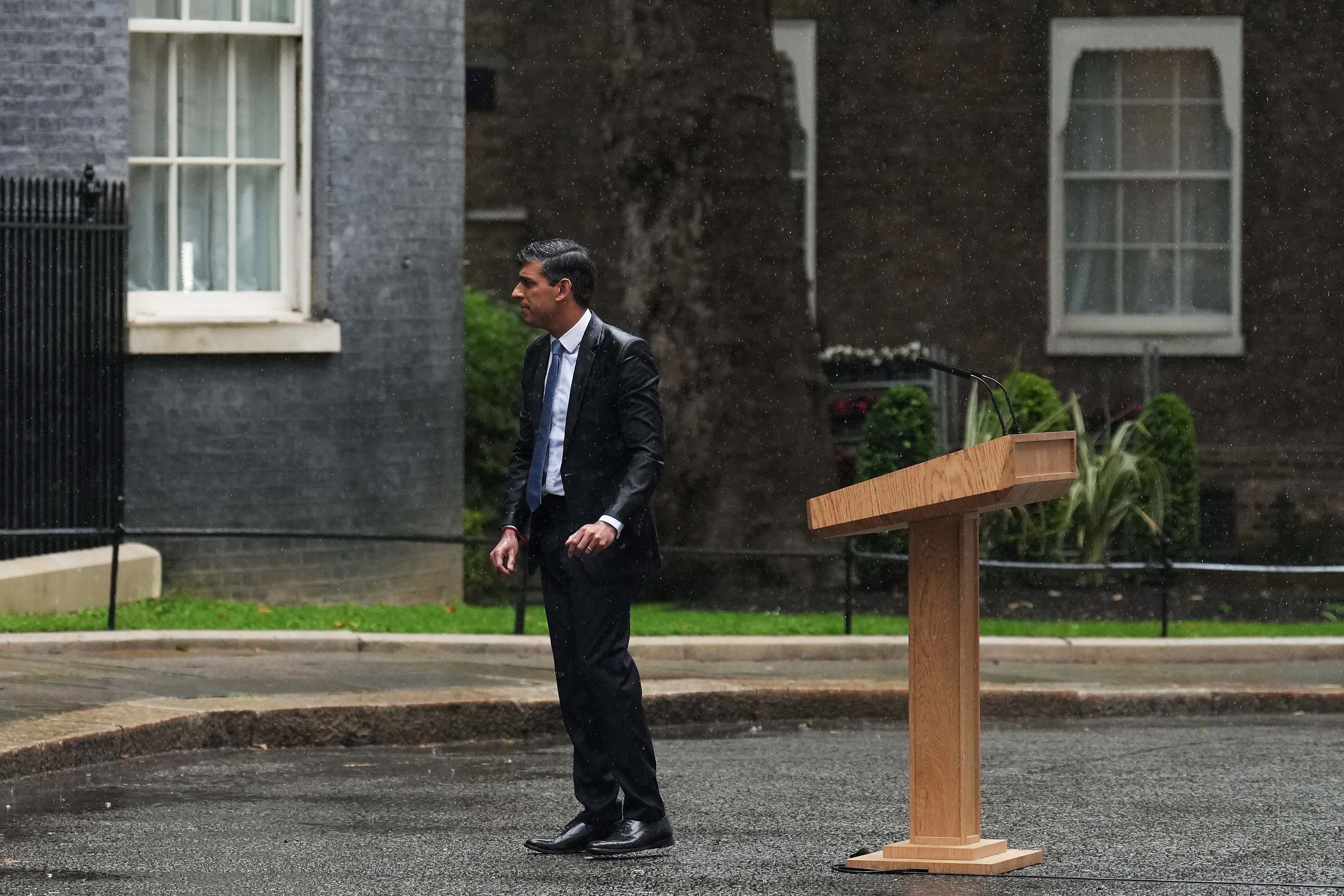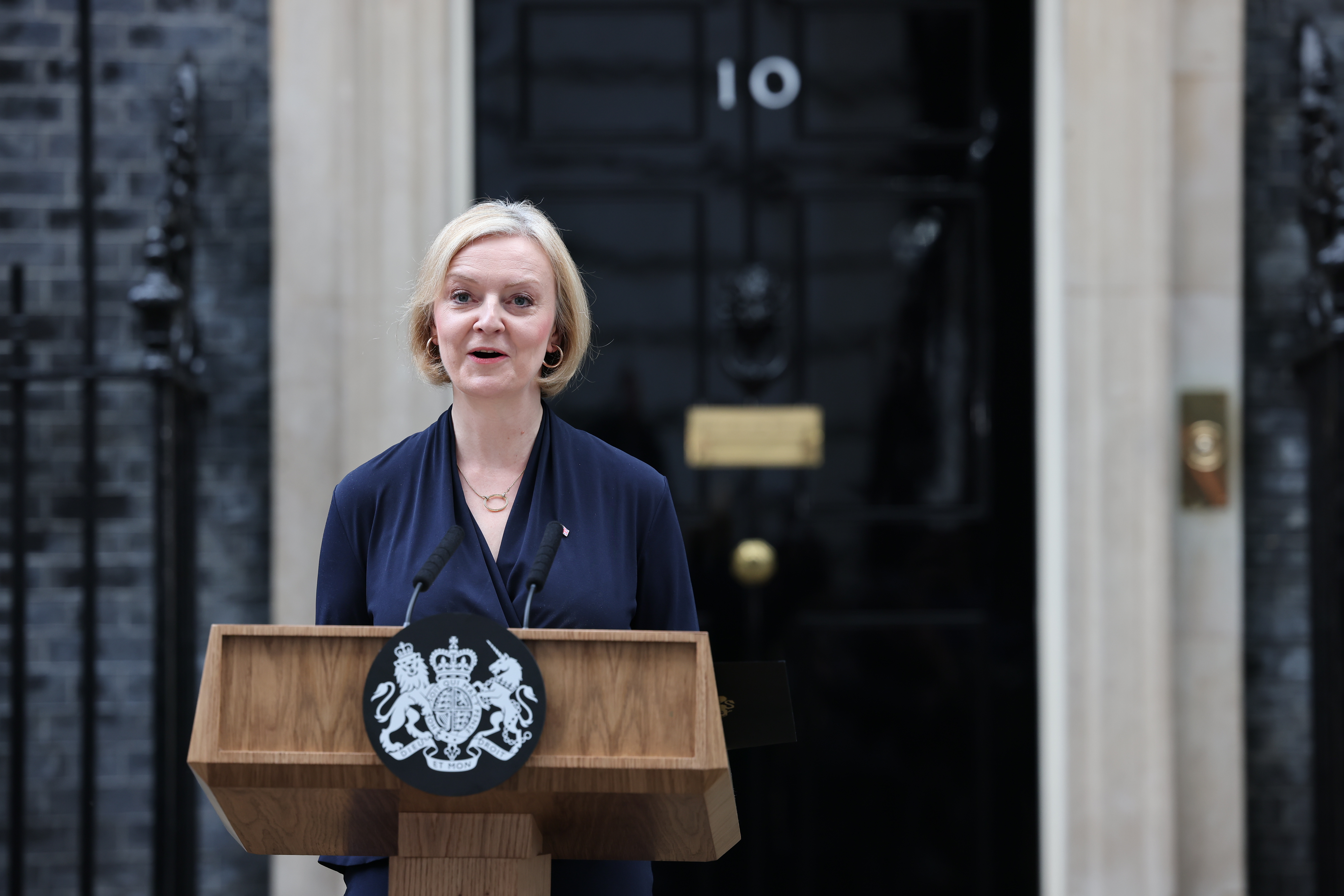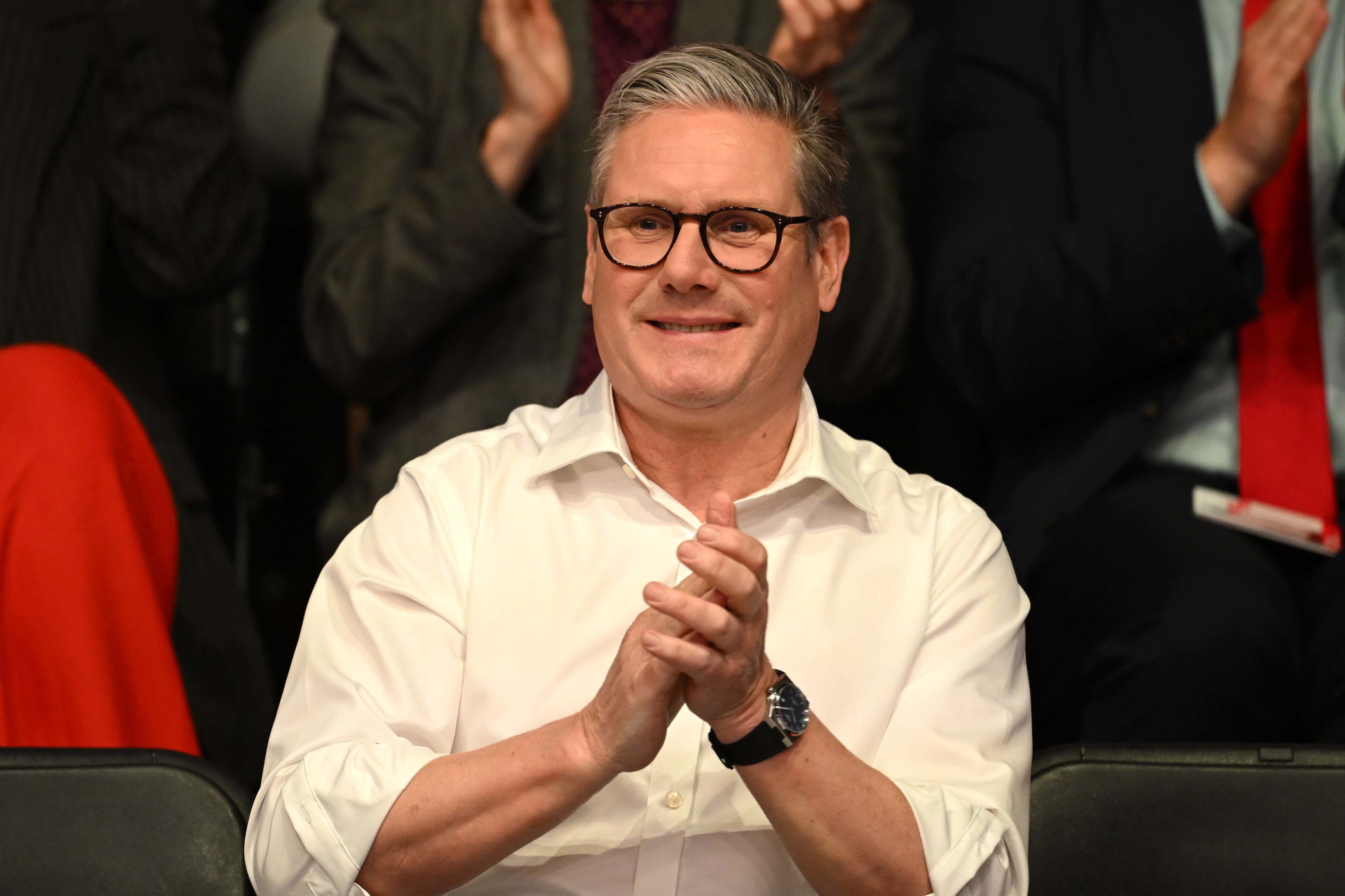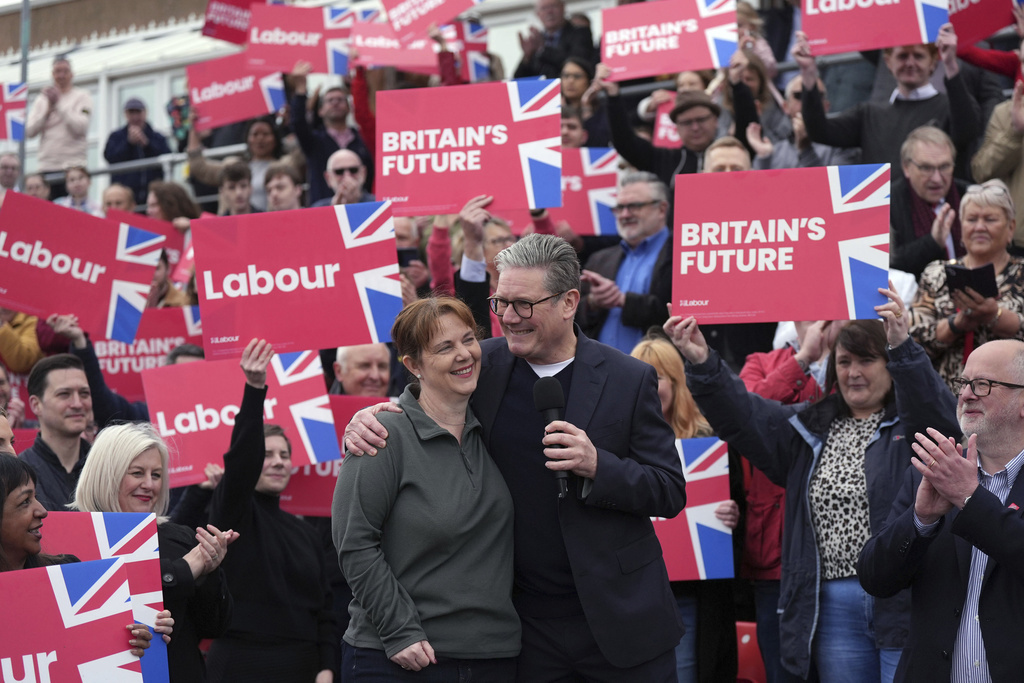British Prime Minister Rishi Sunak has announced a general election for the country will be held on July 4.
Sunak said he'd asked King Charles III to formally dissolve parliament and the monarch had agreed.
"Now is the moment for Britain to choose its future," Sunak said outside No.10 Downing Street on Wednesday afternoon (early Thursday AEST).
READ MORE: UK lawmaker who lost four limbs to sepsis returns to parliament
"To decide whether we want to build on the progress we have made or risk going back to square one with no plan and no certainty.
"This election will take place at a time when the world is more dangerous than it has been since the end of the Cold War."
Earlier this month his Conservative Party was trounced in local elections, more indications they would not hold onto power.
The results showed Sunak had not improved the Conservatives' overall position following the damage caused by the actions of his predecessors, Boris Johnson, who was effectively ousted, and then replaced by Liz Truss, whose tenure lasted only 49 days after her economic policies rocked financial markets.
The Labour Party, led by Keir Starmer, 61, is widely tipped to return to power after 14 years in the wilderness.
Sunak announced the election amid torrential rain in London, his navy suit quickly becoming soaked as protesters – who are often outside Downing St, attempted to drown him out with music.
They played the D-Ream song Things Can Only Get Better, which is more closely associated with Labor PM Tony Blair, who swept to power in 1997.
Elections in the UK have to be held no more than five years apart, but the prime minister can choose the timing within that period.
Sunak, the nation's first British-Asian prime minister, had until December to call an election.
His centre-right party has seen its support dwindle steadily after 14 years in power.
It has struggled to overcome a series of crises including an economic slump, ethics scandals and a revolving door of leaders in the past two years.
Bookies and pollsters rank Sunak as a long shot to stay in power.
But he said he would "fight for every vote".
Sunak stressed his credentials as the leader who saved millions of jobs with support payments during the COVID-19 pandemic and got the economy under control.
He said the election would be about "how and who you trust to turn that foundation into a secure future".
The election will be held against the backdrop of a cost-of-living crisis and deep divisions over how to deal with migrants and asylum seekers making risky English Channel crossings from Europe.
The announcement came the same day official figures showed inflation in the UK had fallen sharply to 2.3 per cent, its lowest level in nearly three years on the back of big declines in domestic bills.
The drop in April marks the greatest progress to date on five pledges Sunak made in January 2023, including halving inflation, which had climbed to above 11 per cent at the end of 2022.
He hailed the new figure as a sign his plan was working.
"Today marks a major moment for the economy, with inflation back to normal," Sunak said on Wednesday ahead of the election announcement.
"Brighter days are ahead, but only if we stick to the plan to improve economic security and opportunity for everyone."
Voters across the United Kingdom will choose all 650 members of the House of Commons for a term of up to five years.
The party that commands a majority in the Commons, either alone or in coalition, will form the next government and its leader will be prime minister.
The Conservatives have also lost a series of special elections for seats in parliament this year, and two of its lawmakers recently defected to Labour.
Following on his party's successes in the local elections, Starmer, 61, last week announced a platform focused on economic stability after years of soaring inflation as he tries to win over disillusioned voters.
A former chief prosecutor for England and Wales, he also pledged to improve border security, recruit more teachers and police and reduce lengthy waiting lists at hospitals and doctors′ clinics across the country.
Many political analysts had anticipated that an autumn election would give Conservatives a better chance of maintaining power.
That's because economic conditions may improve further, voters could feel the effect of recent tax cuts, interest rates may come down and a controversial plan to deport some asylum-seekers to Rwanda — a key policy for Sunak — could take flight.
Sunak had been noncommittal about the election date, repeatedly saying — as late as lunchtime on Wednesday — that he expected it would be in the second half of the year.
Although inflation has fallen, Sunak's other promises — to grow the economy, reduce debt, cut waiting lists to see a doctor at the state-run National Health Service and stop the influx of migrants crossing the English Channel — have seen less success.
– Reported with Associated Press


